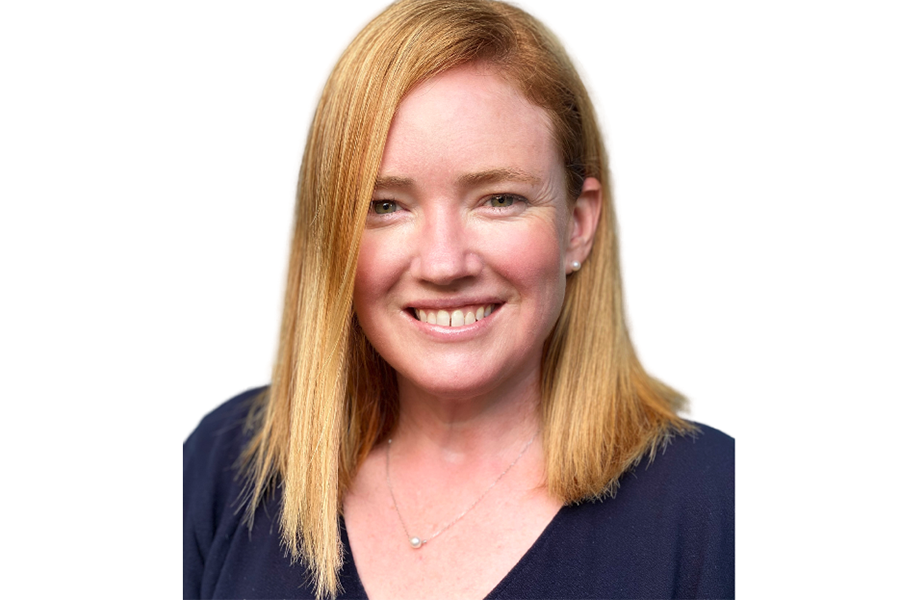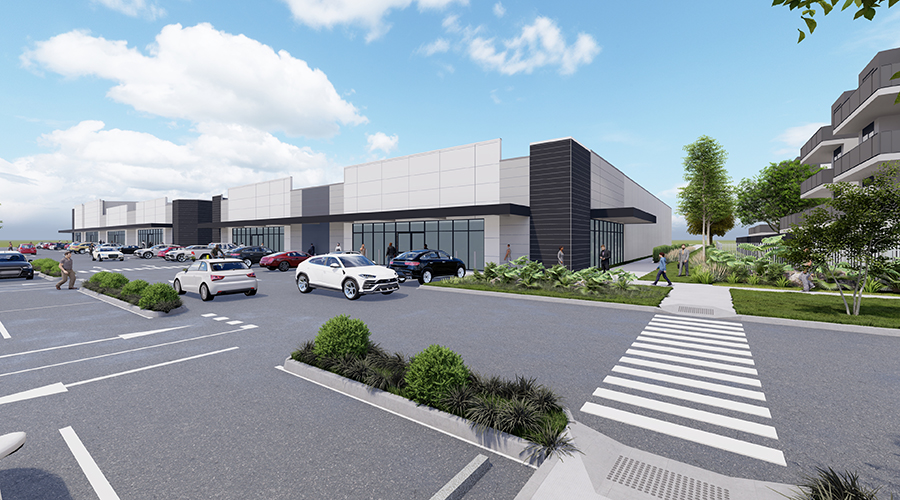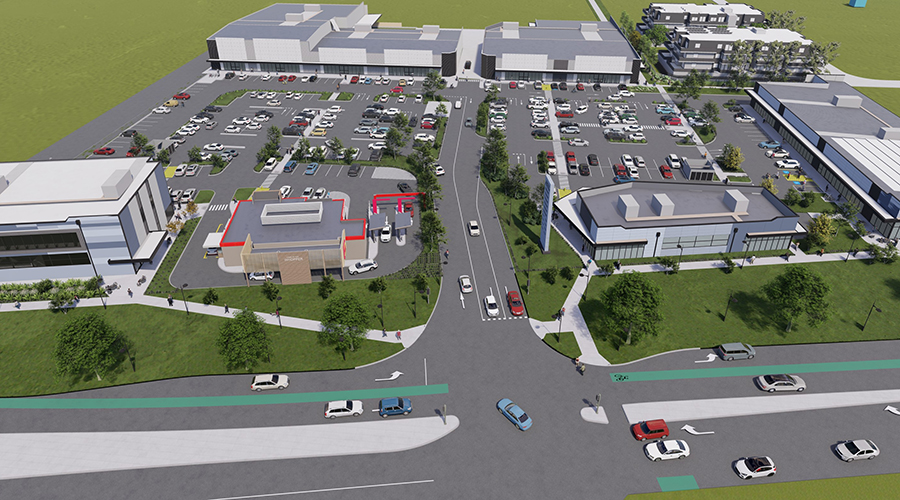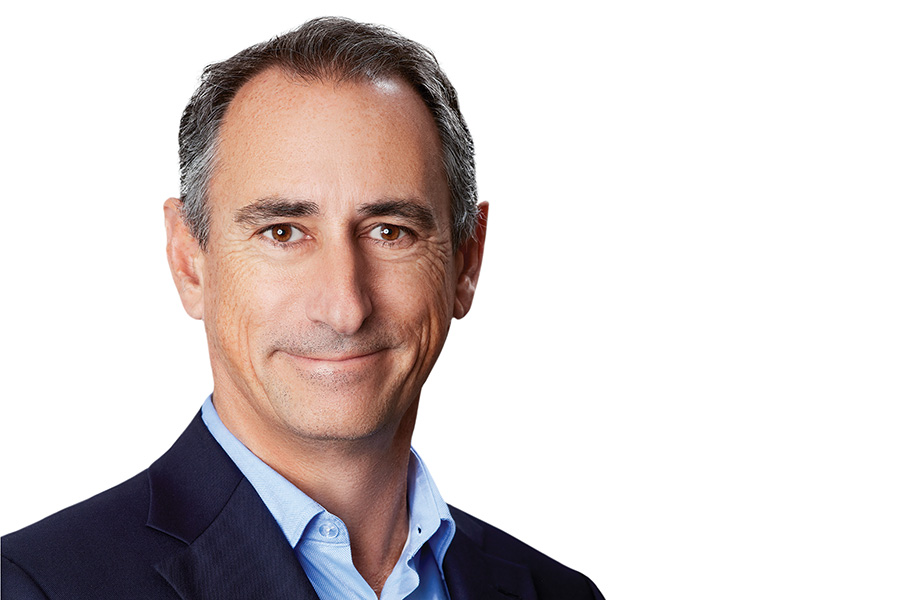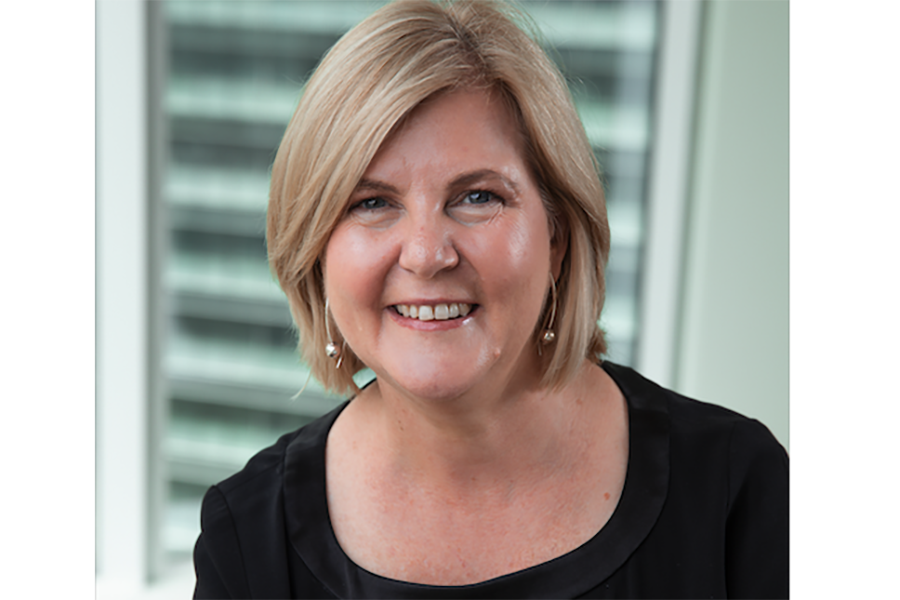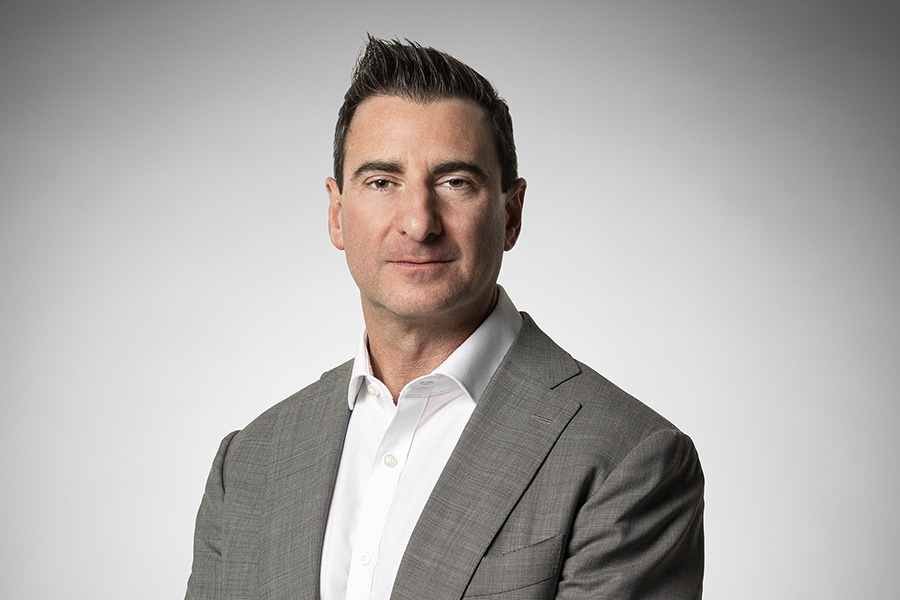This article by Michelle Higgins, Group General Manager, Property – Region Group, forms part of SCN’s annual CEO Outlook feature published in Big Guns 2024. Premium members can view the full digital magazine here.
It’s been a year since we became Region Group. Reflecting on the past ten months since I joined the organisation, I see that our people have remained focused on supporting better communities through life’s essentials while delivering value to our customers. We have all, personally and professionally, been navigating through unprecedented times. From the unfathomable effects COVID-19 brought, to the cost-of-living crisis being experienced, it is pleasing to see our industry faring relatively well during these trying times.
Convenience and the essentials remain paramount
During the past 36 months, we have learnt to live with COVID-19 in our communities. While we no longer face restrictions, we continue to see a residual shift in consumer behaviour that seems to be staying here inevitably. For our industry, we have noticed that hybrid ways of working have led to the rise of shopping locally. While online retail growth is moderating, online retail models are becoming more efficient. Many sophisticated retailers beyond our majors use their stores as last-mile fulfilment facilities.
Despite headline retail sales growth across Australia looking strong and above pre-COVID levels, spending per capita shows moderate growth, as inflation and population underpin results. With the cost-of-living crisis putting pressure on households, spending in discretionary categories is waning. Historically, we have seen a correlation between low consumer confidence and favourable supermarket and non-discretionary retail sales, as consumer spending tightens and is limited to the essentials. Despite the inherent impacts of rising expenses, our properties are well-positioned to benefit from majors’ turnover rent resulting from inflation. Speciality retail, particularly in non-discretionary categories, also benefits from inflation, with increased sales and strong sales productivity leading to positive rental reversion opportunities.
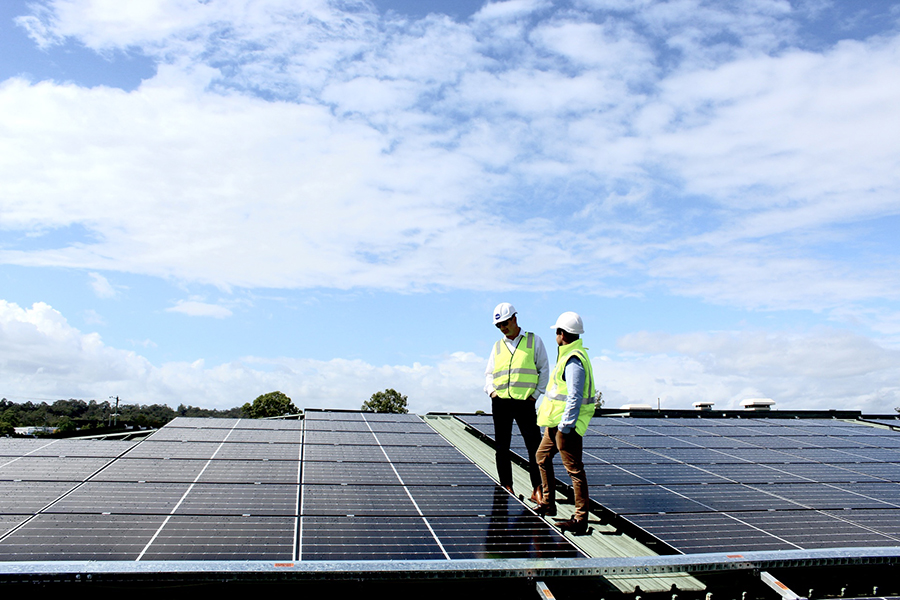
Oxenford Village solar project
Operating in local convenience means we are well-positioned to cycle through this market. As consumers continue to tighten their belts, spending in discretionary categories like apparel and leisure is shifting towards non-discretionary categories beyond supermarkets, such as medical, healthcare, beauty services, pharmacy, communications and food. As of 31 December 2023, our moving annual turnover (MAT) was 4.1%, and since FY19, we have achieved a 3.6% average comparable MAT growth. Moreover, our non-discretionary specialty MAT growth was 4.6%, with more than 76% of our gross rent coming from our non-discretionary retail partners.
Evolving our business to meet our customers’ needs
More than ever, our strategy is solid, and we remain focused on delivering defensive, resilient cashflows to support secure and growing long-term distributions to our security holders. Focusing on optimising our core business is a key pillar of how we deliver on our strategy. It’s not just about our convenience-based shopping centres. It’s also about being region-wide and nearby, helping our retail partners succeed, and allowing our communities to thrive.
Our promise is simple and straightforward: ‘What you need when you need it’. We want people to be able to rely on us to ensure they have what they need when they need it and in a way that works for them. Value co-creation with our supermarket retail partners allows us to deliver on our promise. Woolworths and Coles are using our properties for last-mile fulfilment for pick-up and home delivery. To date, we have 77 Direct-to-Boot and e-commerce supermarket facilities operating across our portfolio. Six were completed in 1H FY24, and three are in the pipeline for 2H FY24. We also focus on ensuring online sales are included in turnover rent, which we have achieved across 96% of stores.
We also believe that the store-based fulfilment model will continue to grow for online grocery fulfilment in Australia, especially where our properties are located, because of relatively low population densities, vast distances, established existing supply chains and high temperatures. With our research showing a correlation between an increase in online sales and foot traffic, we will be looking at the opportunity to extend this service across our specialities in the future.
Listening to our customers is no longer a nicety; it’s an expectation. Last year, we implemented our ‘voice of the customer’ program across several strategic assets to identify sentiment around the customer journey. We are using these insights to inform capital spending and guide strategic asset planning and the development of centre value propositions. As part of asset planning, we have been establishing a program of investment for centre repositioning with our customers’ voices at the heart of this.
Our ambition of delivering fast and easy essentials at a place nearby is what we want to be synonymous with, and these regenerative projects will unlock this ambition. We will drive asset value, targeting an IRR between 7% and 10% by focusing on the right tenant mix, category curation, space and customer experience. With an investment commitment of more than $30 million across three assets, including Lavington Square (NSW), Miami One (QLD) and Pakenham Central Marketplace (VIC), we have 20 properties with investment opportunities currently being assessed. As part of this project, we have undertaken a brand architecture study and look forward to launching our Region brand within these communities.
- Stage 2 expansion of Delacombe Town Centre
- Stage 2 expansion of Delacombe Town Centre
We are also underway with stage 2 expansion of Delacombe Town Centre. This $31.5 million investment will expand Delacombe Town Centre by an additional 11,000m2 and is expected to be completed in December 2024. We also have several uncommitted investment opportunities within our pipeline, including Greenbank Shopping Centre (QLD), which includes a 22,000m2 expansion to the existing centre; ten potential pad site redevelopment opportunities; and Marketown Shopping Centre (NSW) mixed-used redevelopment.
Underpinning our core business is our people and our better together partnership with Knight Frank, our appointed property managers. In February, we announced enhancements to our newly named property team. Realigning roles and responsibilities will unlock our growth and value-creation ambitions. Introducing the investment management role enables our team to move away from day-to-day operations and focus on higher-value initiatives, including asset enhancement strategies, investment performance and future-focused property income generation. The introduction of dedicated portfolio management will concentrate on operational excellence and elevate the customer experience and presentation consistency across our portfolio, partnering closely with Knight Frank. We have also introduced strategic partnerships and delivery, charged with asset project delivery and brand and retail income opportunities.
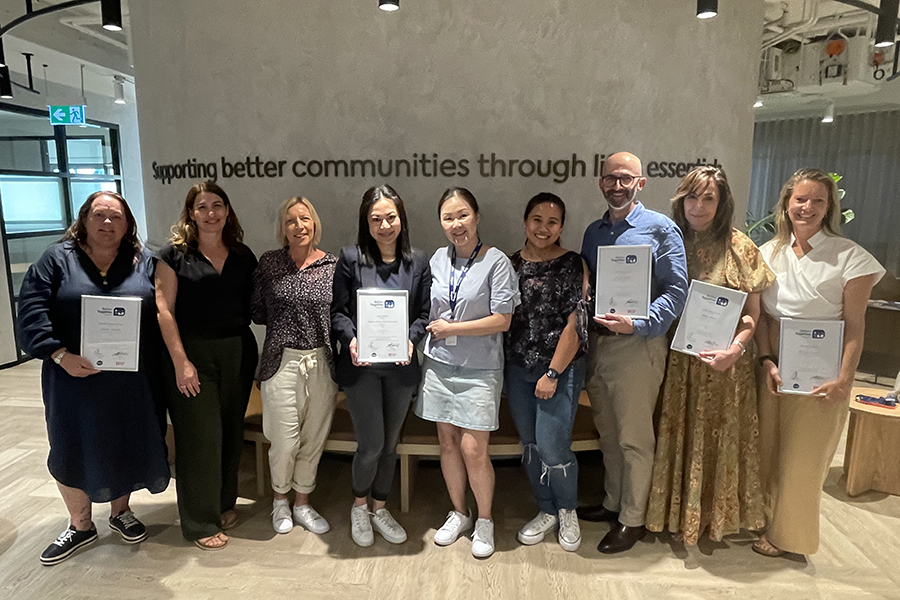
Strength in ESG
Being a responsible business is not only a requirement from our investors but is also fundamental to fulfilling our purpose. Launching our ESG strategy in FY21, we signalled our intent to clearly define and demonstrate our environmental and social value and our commitment to work with our retail partners, customers and external partners to help deliver positive changes – supporting better communities.
Sustainability is at the core of our business. It’s not just an investment; it’s an organisation’s true recognition, accountability and commitment to the environment, social governance and even betterment. At Region, we have been focused and have made significant progress toward our commitments. We have invested $31.3m in our quest to net zero, including 23.3MW of solar PV installed or under construction by the end of FY24. We also achieved more than 2,500 tonnes of CO2 equivalent reduction in electricity emissions for FY24. Climate change impact assessments commenced at six sites with scenario analysis of impacts from temperature increases (from 1.5 to 2). To deliver on our purpose of supporting communities better through life’s essentials, our teams have been focused on implementing their local community engagement plans.
Looking at the year ahead
As we continue to optimise our core portfolio, we will focus on value-creation opportunities that benefit our customers and communities. Our ambition to meet customer needs will deliver shareholder value and position us as the first choice for the essentials in people’s lives.


